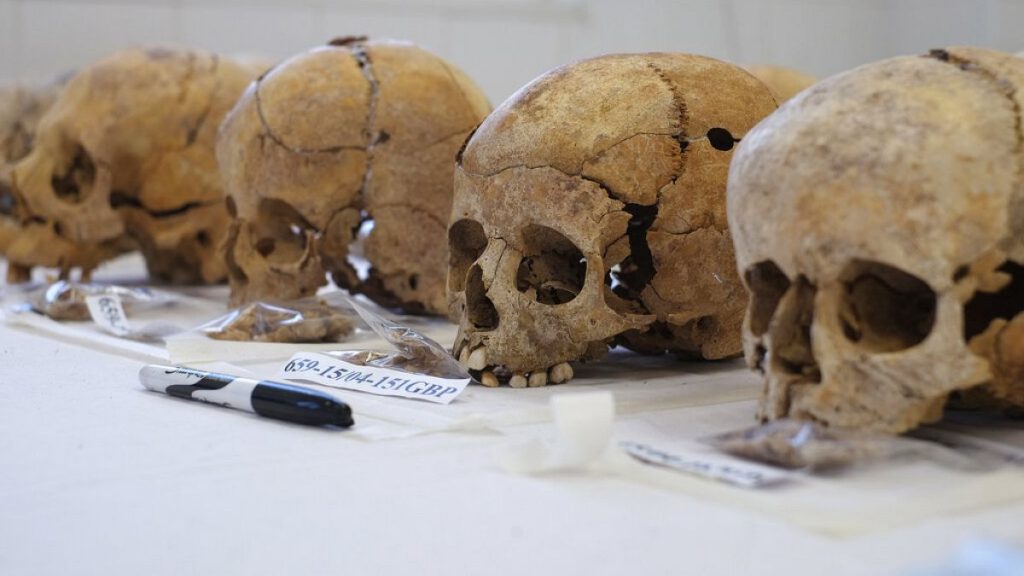Conflict in the 1960s and 1970s left thousands dead or missing and forced a quarter of Greek Cypriots to flee.
Fifty years after the 1974 Turkish invasion, thousands of people remain missing in Cyprus, leaving families unable to hold funerals or find closure in their grief.
This Sunday, July 21, marks 50 years since the invasion divided the island. The mostly Greek-speaking south joined the EU in 2004 and is an internationally recognised independent state.
Only Turkey considers Northern Cyprus to be an independent country.
The search for missing people continues
Every year Greek Cypriots commemorate the thousands of people who died in the conflict, as well as those who are still missing as the search continues.
“We are looking for our missing people, it doesn’t matter if they are Greek Cypriot or Turkish Cypriot. We are looking for our missing people, they are all Cypriot,” Cypriot archaeologist Celen Selaroglou said at a mass grave created in 1974 on the outskirts of Nicosia.
The island’s Bicommunal Committee for Missing Persons, made up of Greek Cypriots, Turkish Cypriots and archaeologists, is working to find the remains of those still missing.
According to witnesses, 16 people were buried there at the time. Archaeologists are always supervising the search in pairs, one Greek Cypriot and one Turkish Cypriot.
“Archaeologists discovered bones that can be seen on these tables,” says anthropologist Theodora Eleftheriou.
“We brought boxes of these bones into the lab. Some of the bones were jumbled together. We put the bones together and tried to make a skeleton of these four people.”
While scientists are struggling to identify the bones found in Cyprus, the Commission on Missing Persons has already found around 1,000 people, including civilians and soldiers, who went missing from both sides in the conflict.
“Sometimes we find just a few bones, and sometimes a full body is discovered, but it often takes years before we know exactly who the person is. Then, when all the pieces of the puzzle fall into place and an identification is made, it’s a very important moment for families and relatives – they can finally close a chapter in their life,” Eleftheriou said.
But for some relatives, this may be enough.
“He came back as just bones, but we are happy that he is finally back. We will bury him next to my mother. We are very happy because our story has now ended,” said Kutrai Elku, a relative of the victim.
“This is something Petros had in his pocket,” another relative said. “Something related to Petros. A shoe.”
Turkish Invasion
Cyprus gained independence from Britain in 1960, but violence quickly led to the collapse of the Greek Cypriot and Turkish Cypriot union government.
Fourteen years later, encouraged by Greece, Turkey invaded in response to a Greek Cypriot coup.
The pretext for the invasion was to protect Turkish Cypriots, who make up about 18 percent of the island’s population.
About 160,000 Greek Cypriots were forced south and more than a third of the island was occupied by Turkey. More than 3,000 people died.
Efforts at reunification have failed
Attempts to reunify Cyprus have so far always failed: Greek Cypriots want reunification as a federal state, while Turkish Cypriots want a two-state settlement.
Greek-speaking Cypriots and Turkish-speaking Cypriots disagree on such matters as the geographical division of the island.
Things have been relatively quiet in Cyprus in recent years, but the situation remains tense.


